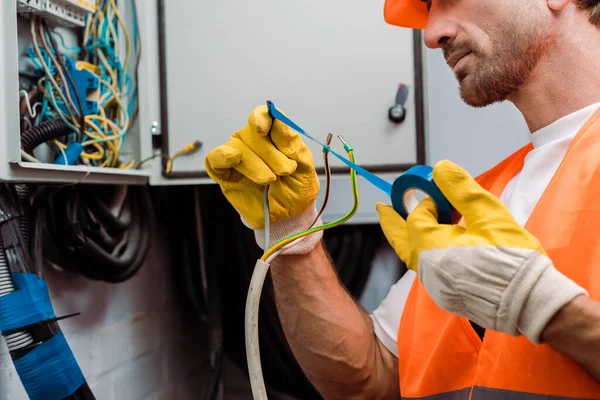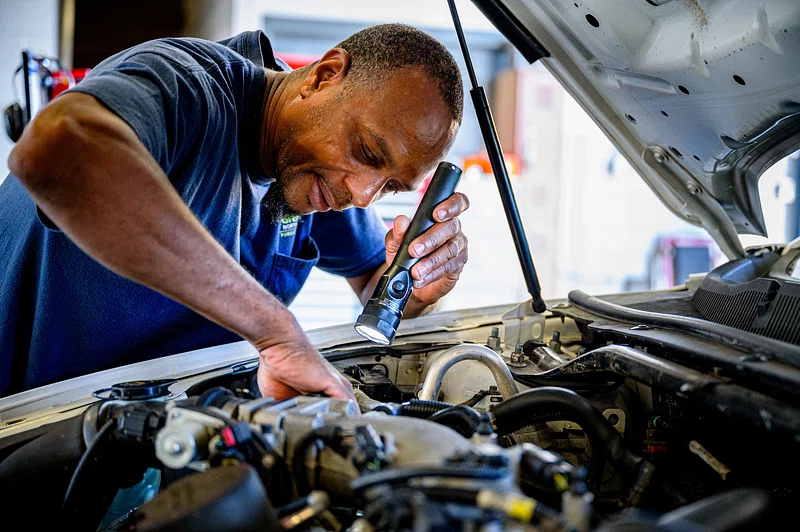Guide to Safe Electrical Installations at Home
Guide to Safe Electrical Installations at Home

Electrical safety is crucial in every home. Proper electrical installations not only help ensure the smooth functioning of your household appliances but also prevent accidents like electrical fires or shocks. Whether you’re a new homeowner or someone looking to refresh their knowledge, this guide will walk you through the basics of safe electrical installations.
Understanding the Basics of Electrical Installations
Before diving into specific tips and advice, it’s essential to understand what electrical installations are. This refers to setting up the wiring, outlets, switches, and other electrical components in your home. Whether you’re installing a ceiling fan, adding new outlets, or setting up a home theater system, it’s important to ensure that everything is done according to safety guidelines.
Improper installations can lead to dangerous situations, including electrical fires, short circuits, or electrocution. That’s why safety should always be a priority when dealing with electrical systems.
Hire a Professional Electrician
While DIY projects are popular, electrical work is one area where professional help is often necessary. Licensed electricians are trained to handle electrical systems safely and know the local building codes and regulations. If you’re planning to install or upgrade your home’s electrical system, it’s best to hire an experienced electrician.
A professional will ensure that your installation follows safety standards and local laws. They will also help you avoid common mistakes that can lead to costly repairs or hazardous situations.
Inspect Existing Wiring
Before you start any electrical installation, it’s crucial to inspect the current wiring in your home. Over time, wiring can become damaged due to wear and tear, moisture, or pest infestations. Faulty wiring is a leading cause of electrical fires, so it’s essential to regularly check for any signs of deterioration.
If you find any exposed wires, frayed insulation, or unusual burning smells, immediately turn off the power supply and contact a licensed electrician to handle the repair or replacement.
Use Proper Tools and Materials
Always use the right tools and materials for the job. For instance, if you’re installing a new outlet or light switch, make sure you’re using electrical-grade wires, screws, and connectors. These components are specifically designed to handle the high voltage running through your home’s electrical system.
Substandard materials or the wrong tools can increase the risk of electrical failure or even cause a fire. Always buy electrical materials from a reliable source, and if in doubt, ask a professional for recommendations.
Follow the Right Wiring Procedures
When installing new electrical components, follow the correct wiring procedures to ensure everything is properly connected and secure. If you’re installing an outlet or switch, make sure the wires are stripped properly and connected to the correct terminals. Improperly connected wires can result in short circuits or even electrocution.
It’s also essential to check that the power is turned off before handling any electrical wiring. Using a voltage tester can help ensure that no electricity is flowing through the wires.
Know the Correct Circuit Ratings
Every home electrical system has circuits that are rated to handle a specific amount of electrical load. If too many devices are connected to one circuit, it can overload the system and cause a fire. When planning electrical installations, be mindful of how many devices you’ll be connecting to each circuit.
For instance, heavy appliances like refrigerators, air conditioners, or washing machines require their own dedicated circuits. For lighter devices like lamps and small electronics, they can share a circuit, but it’s essential to stay within the circuit’s rating to prevent overloading.
Install Safety Devices Like Circuit Breakers
Circuit breakers are essential safety devices that protect your electrical system from overloading. They automatically cut off the power supply if a circuit becomes overloaded or if there’s a short circuit. Installing circuit breakers is one of the best ways to protect your home from electrical hazards.
Make sure your home has a properly functioning circuit breaker panel, and don’t attempt to bypass or remove any circuit breakers. In case of any issues, contact a licensed electrician to inspect and repair the system.
Protect Outlets and Electrical Cords
In homes with young children or pets, protecting outlets is a must. Outlet covers are inexpensive devices that prevent little fingers from coming into contact with electrical outlets, reducing the risk of electrical shock.
Additionally, be cautious with electrical cords. Never run cords under carpets or furniture, as this can cause the wires to overheat. Ensure cords are in good condition and free from damage, as frayed or exposed wires can pose serious safety risks.
Use Ground Fault Circuit Interrupters (GFCIs)
Ground Fault Circuit Interrupters (GFCIs) are important safety devices that protect against electrical shock. They are designed to detect electrical imbalances and automatically cut off the power if an issue is detected. GFCIs are especially important in areas with high moisture, like bathrooms, kitchens, or outdoor outlets.
Install GFCIs in any area where water is present. They can help prevent serious electrical accidents by shutting off power if water comes into contact with electrical outlets or equipment.
Avoid Overloading Extension Cords
Extension cords are often used to power multiple devices, but they should never be overused or overloaded. Plugging too many devices into an extension cord can cause the cord to overheat and increase the risk of fire.
Always check the wattage rating of an extension cord before plugging in multiple devices. If you need to connect many devices, consider installing more outlets instead of relying on extension cords.
Keep Electrical Components Dry
Water and electricity don’t mix. Avoid touching electrical components with wet hands, and keep electrical outlets, switches, and appliances dry. Never use an electrical device in wet conditions unless it’s specifically designed for outdoor use or moisture-prone areas.
If an electrical appliance or component becomes wet, disconnect it immediately, and have it inspected by a licensed electrician before use.
Regularly Maintain Your Electrical System
Like any other system in your home, your electrical system needs regular maintenance to stay safe and efficient. Schedule periodic inspections by a licensed electrician to identify any potential issues before they become serious problems. They will check for signs of wear, overheating, and other issues that could cause electrical hazards.
Why Choose Manikaran Enterprises for Your Electrical Installation Needs?
When it comes to ensuring the safety and reliability of electrical installations, choosing the right service provider is essential. Manikaran Enterprises offers top-notch Electrical Installation and Commissioning Services in India, ensuring that your electrical systems are installed and maintained with the utmost care and precision. With a team of experienced professionals, we guarantee that all installations are up to code, safe, and efficient.
Whether you need residential, commercial, or industrial electrical installations, Manikaran Enterprises is equipped to handle all your electrical needs. We pride ourselves on offering reliable and affordable services that ensure your home or business remains safe and operational. Reach out to us today for expert electrical installation and commissioning services that you can trust.
Conclusion
Electrical installations are a vital part of every home, but they come with risks if not handled correctly. By following these simple safety tips and hiring a professional electrician when needed, you can ensure that your home’s electrical system remains safe, efficient, and hazard-free. Always prioritize safety and never hesitate to seek help from a professional if you’re unsure about any aspect of your home’s electrical system.







